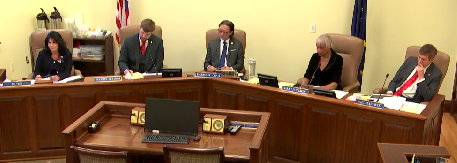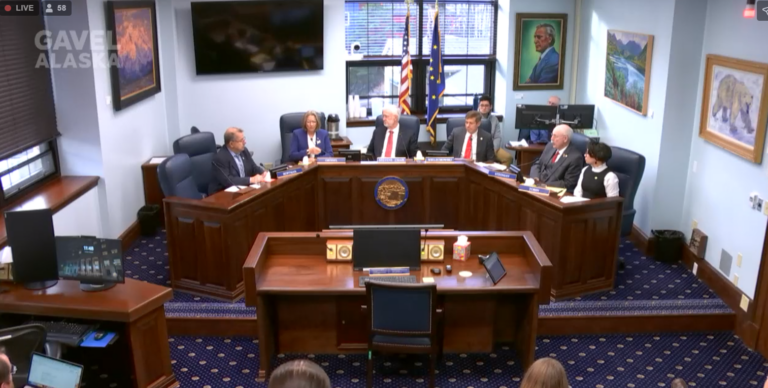The State of Alaska continued to allow taxpayer money to fund elective abortions for four months after President Trump suspended Medicaid funding for Planned Parenthood and other clinics.
The Big Beautiful Big (H.R.1) was signed into law on July 4, 2025. The bill included a one-year ban on Medicaid funding for certain pro-abortion clinics. The State of Alaska failed to comply until November 5th. However, the restriction does not apply to all providers, and Alaska continues to use Medicaid funds for elective abortions performed in hospitals and other medical providers.
Editor-in-Chief Joel Davidson from Alaska Watchman dove into the story after hearing from Alaska Right to Life Director Pat Martin. According to Pat Martin, “it wasn’t until he began working behind the scenes, pressing Gov. Dunleavy’s office and top officials in the Alaska departments of health and law, that Alaska finally halted Medicaid reimbursements to Planned Parenthood.”
In response to Alaska Watchman’s questions, Alaska Health Department Communications Director, Shirley Sakaye, stated that Planned Parenthood’s Medicaid funding was placed on hold on November 5, 2025. According to Sakaye, the delay was due to “additional analysis of federal requirements.”
Sakaye also stated that Medicaid funds issued to Planned Parenthood and other ineligible abortion clinics during the delay period will be rescinded. Although the money can be rescinded, the deaths of innocent babies resulting from the illegal funding cannot be undone.
Do Pro-Life Laws Harm Women?
Although pro-abortion advocates often declare pro-life laws harmful to women because they prevent medical professionals from saving the life of the mother when necessary, this claim is false. Alaska law specifically excludes situations where an abortion is necessary to save the mother’s life from the definition of abortion.
Alaska law (§18.16.090) defines abortion as “[T]he use or prescription of an instrument, medicine, drug, or other substance or device to terminate the pregnancy of a woman known to be pregnant, except that ‘abortion’ does not include the termination of a pregnancy if done with the intent to: (A) save the life or preserve the health of the unborn child; (B) deliver the unborn child prematurely to preserve the health of both the pregnant woman and the woman’s child; or (C) remove a dead unborn child.”
All states either have this definitional exclusion, or they provide a specific “life-of-the-mother” exemption.
Fact: 95.9% of Abortions Are Performed on Healthy Moms, Healthy Babies
Not only is the claim that abortion bans threaten the life of the mother unfounded and false, but data shows that 95.9% of abortions performed in America are completely elective, meaning they are performed on healthy mothers and healthy babies. 0.3% of abortions are performed to save the life of the mother (which is legal in every state), 0.4% of abortions are performed for the reason of rape or incest, 1.2% are performed because of fetal anomalies, and 2.2% are performed for other physical health concerns.
With over a million abortions committed in the U.S. per year, that is approximately 2,600 innocent babies killed every day in the U.S. for no medical reason whatsoever.
Fact: Most Women with Abortion History Wanted Their Babies but Felt Pressured
Despite abortion advocates claiming, “her body, her choice,” a peer-reviewed study published in the medical journal Cureus found that “nearly 70% of women with a history of abortion describe their abortions as inconsistent with their own values and preferences, with one in four describing their abortions as unwanted or coerced.” Additionally, 60% of women stated they would have “preferred to give birth if they had received either more emotional support or had more financial security.”
Tessa Longbons, Charlotte Lozier Institute Senior Research Associate and co-author of the study, states: “No woman should have to endure an unwanted abortion. This ought to be a point of common ground in the abortion debate. Instead it is a rarely discussed third rail, even as pro-abortion politicians work to shut down the life-affirming safety net. It’s time for a national conversation about abortion coercion that respects the range of women’s lived experiences, while acknowledging that the overwhelming majority of abortions are in some degree of conflict with what women actually want. Their stories deserve to be told and not erased from the conversation.”
Here is the reality: the majority of women choosing abortion actually want their babies. Tragically, they choose abortion because they do not have the emotional and financial support that they need, which is largely due to absent or irresponsible fathers.
State Forces Taxpayers to Subsidize Abortion Industry
From July to November, the State of Alaska illegally used taxpayer money to subsidize the ending of innocent lives by Planned Parenthood and other abortion providers. And even now, taxpayers continue to subsidize abortions performed in hospitals and by other medical professionals.








